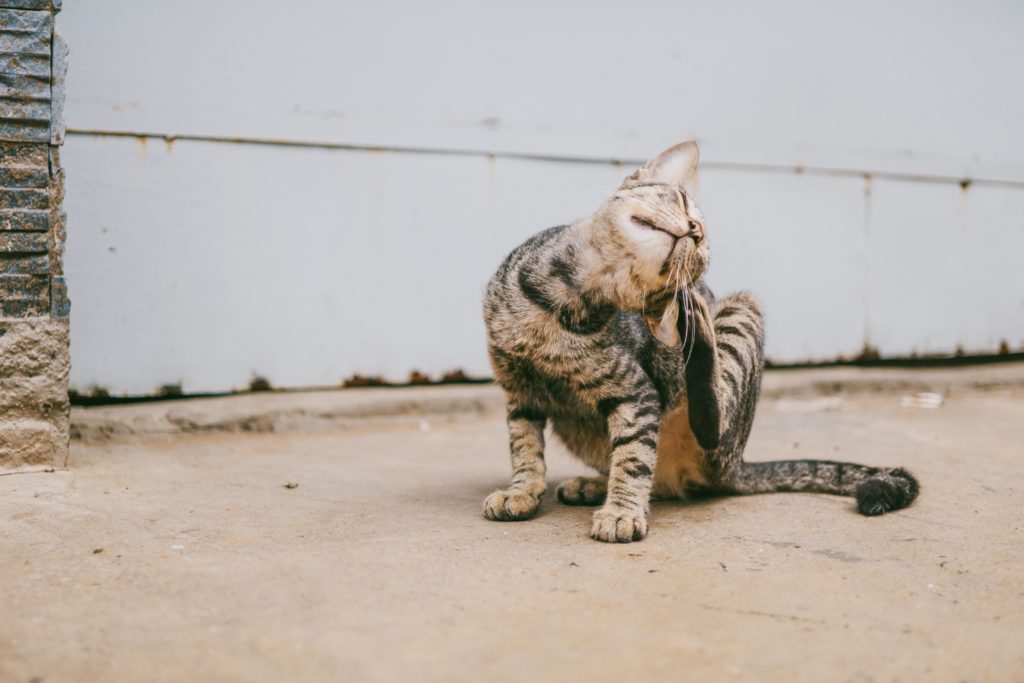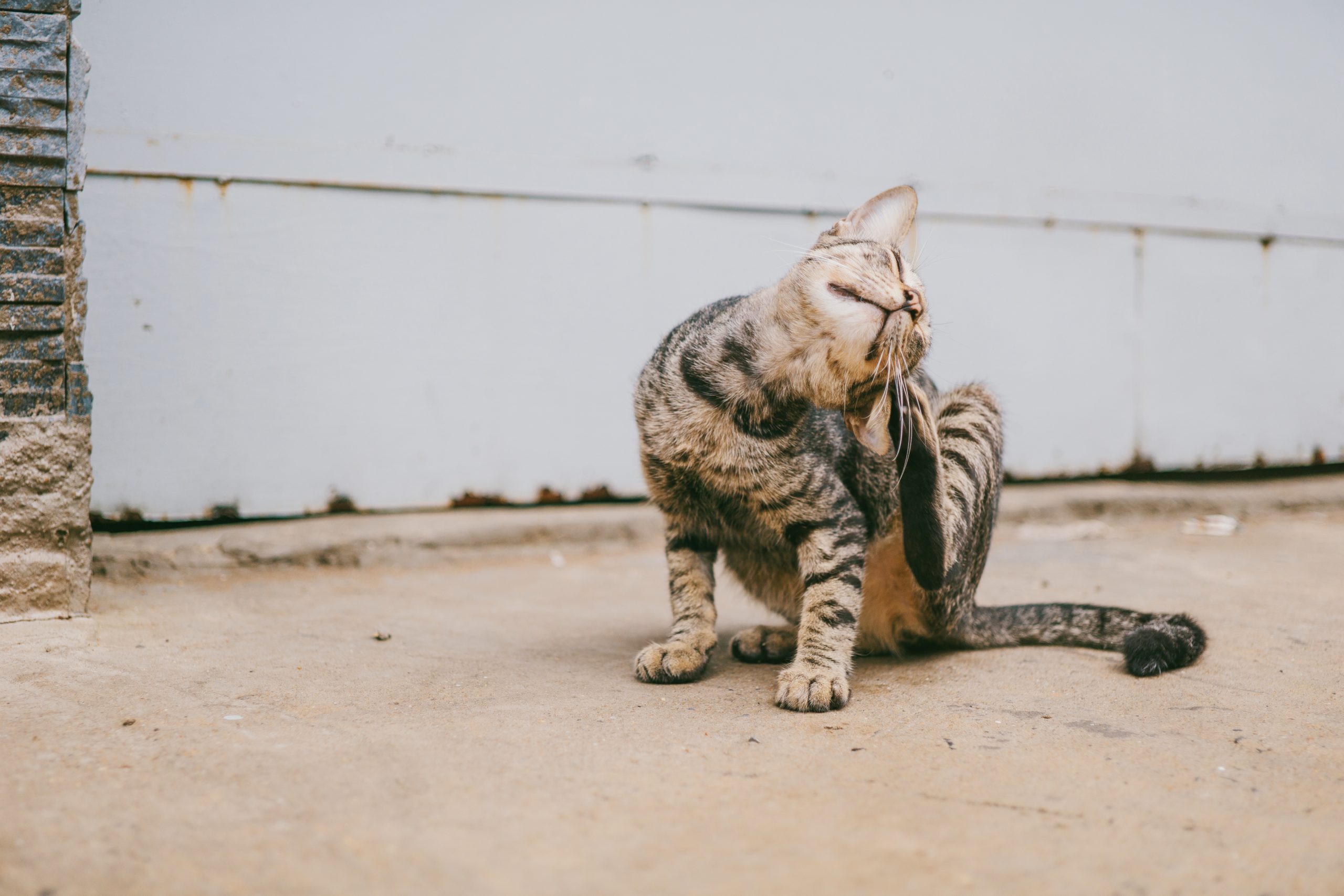
What makes us itch? Itching is caused by the release of the chemical histamine. There are different types of itch.
Almost all animals have an itch and scratch response. Bears scratch themselves on trees and dolphins scratch themselves on rocks, or at the bottom of their tank if they are in captivity. It is an evolved reaction that helps animals locate insects, parasites, or other things that are on their skin. The itch reflex encourages them to scrape the offending organism off. About 7,500 whale lice can live on a single whale and they can be infested with barnacles as well. Whales scratch themselves along the coarse seabed to scrape off as many lice and barnacles as they can.
So, what makes us itch? There appear to be two things that can cause us to itch. The first is by direct stimulation or small injury, such as an insect bite. We have two kinds of receptors in our skin that are called nociceptors. A nociceptor is a sensory neuron that reacts to a stimuli and sends a signal to the brain via the spinal cord. They send warning-of-a-threat signals that require the brain to take action to avert whatever threat it is. We have mechano-responsive nociceptors and mechano-insensitive nociceptors. “Mechano” means mechanical stimuli. Mechano-responsive nociceptors respond mostly to pain and mechano-insensitive nociceptors respond mostly to itches. When they are stimulated, the receptors send a signal to the spinal cord, which travels to the brain, and initiates a response. This would usually be to scratch, which would dislodge whatever was causing us to itch. If something lands on you and you move your hand to remove it, that would be this type of itch. If you put on a woolen sweater and you start to itch, that would be the mechano-insensitive nociceptors as well.
The second thing that causes an itch is histamine. Histamine is a neurotransmitter and is also part of the immune response. This is what can cause itching. Insect bites are especially itchy. When an insect such as a mosquito bites people, it injects saliva into the wound to stop the blood from clotting. Our bodies are allergic to this saliva and it initiates an allergic reaction. Mast cells show up at the site of the wound. These are a type of white blood cell. When they arrive, they release a chemical called histamine. Histamine starts a reaction that makes the capillaries around the wound more permeable to white blood cells. The white blood cells target the invading foreign body (the saliva in this case) and destroy it. This also causes the insect bite to swell up. So, why does it make us itch? The histamine reaches the nerve cells in the top layers of the skin and attaches itself to the protein receptors there. This triggers the receptors and they send itch signals to the brain.
There are other kinds of itches. Some itches are caused by damage to the nervous system. Shingles, strokes, or severe burns can cause this. Because this type of itch is caused by nerve damage, scratching it doesn’t help and sufferers of this can cause themselves damage by overscratching. Similar to this, neurogenic itches are not caused by the skin. They start in the central nervous system and they can be caused by kidney and liver diseases.
Why does scratching help when we itch? The two types of receptors in our skin are for itching and for pain. The signals from the pain receptors are able to block out the signals from the itch receptors. I guess pain is a more important sensation for our brain to react to and those signals get priority in our nervous system. When you scratch, you are causing yourself pain with your fingernails. That mild pain overrides the itching signal and the itching sensation goes away. The itching feeling comes back when the mild pain from scratching disappears.
Histamine is released to protect our body and we should be grateful for the itch of a mosquito bite because it means our body is doing what it is supposed to. However, in some people the system overreacts. People with allergies have a disorder where the immune system reacts to things that are harmless, such as pollen, or some foods. When this happens, it releases more histamine than is necessary and causes a number of symptoms, one of which is itching. Taking antihistamines can help because they stop the production of histamine.
So, why do we itch? We itch because the itch receptors in our skin are triggered by stimuli or by histamine. Scratching helps because the pain receptors override the itch receptors. And this is what I learned today.
Sources:
https://scienceline.ucsb.edu/getkey.php?key=5753
https://en.wikipedia.org/wiki/Whale_louse
http://awesomeocean.com/trending-now/even-whales-need-scratch-itch-sometimes/
https://en.wikipedia.org/wiki/Nociceptor
https://www.ncbi.nlm.nih.gov/pmc/articles/PMC3170689/
https://www.aaaai.org/tools-for-the-public/conditions-library/allergies/what-makes-us-itch
https://www.verywellhealth.com/the-neuroscience-of-itch-2488868
https://www.healthline.com/health/why-do-we-itch
https://en.wikipedia.org/wiki/Itch#Neurogenic
https://en.wikipedia.org/wiki/Histamine
https://www.prevention.com/health/a29388354/what-causes-itching/
https://www.ncbi.nlm.nih.gov/pmc/articles/PMC3170689/
https://www.britannica.com/video/187001/chemical-process-scratching
https://www.britannica.com/story/why-do-mosquito-bites-itch
https://www.news-medical.net/health/What-Does-Histamine-Do.aspx


[…] because of electricity. Stimuli that the body feels, either in the ears when we hear or in the skin when we itch, are converted to electrical signals that travel up our nerves into the brain. These electrical […]